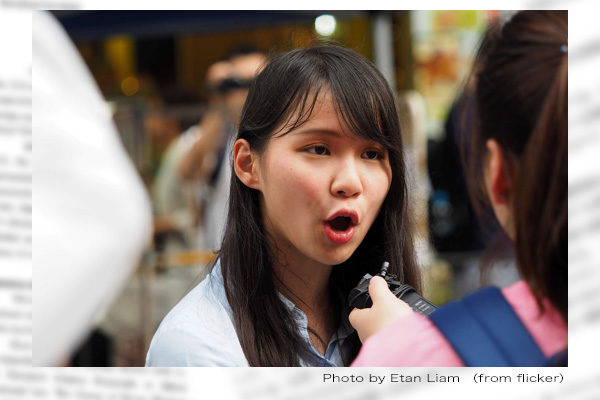Hong Kong pro-democracy leaders have been arrested and sentenced to prison one after another. The Chinese actions have come under growing fire in Japan. Even the Asahi Shimbun newspaper in its editorial on December 3 called on the international community to enhance joint actions against China.
What joint actions should the international community take? To lead a dictatorial regime, which ignores unfavorable international promises or reputations, to stop human rights violation, the international community have no choice but to create a framework to inflict great damage to the regime unless it stops such abuse. The international community’s efforts against human rights violation, as cited by the Asahi Shimbun, are structurally defective, failing to impose international sanctions on China for its awful abuse. The defects have been overlooked or even nurtured by Japanese human rights advocates including the Asahi.
Structurally defective U.N. human rights organizations
Representing the international community at present is the United Nations. Since its founding, the U.N. has tackled human rights issues based on the Universal Declaration of Human Rights, the International Covenants on Human Rights, and the like, creating the Human Rights Council to replace the Human Rights Commission in 2006. The council consists of 47 states that serve the three-year term and can be reelected. As council member states have their respective human rights issues, however, they tend to rein in each other and fail to take up their issues.
Under U.N. human rights efforts, systems have been developed for nongovernment organizations and individuals to charge their respective governments with human rights abuse under the assumption that governments frequently violate their citizens’ human rights. In Japan, the United States and Europe where press and political freedom is guaranteed, human rights advocates have inordinately emphasized human rights abuse in their respective countries. Among them has been the Asahi.
Meanwhile, as for China, North Korea, and other totalitarian states where NGOs are not allowed to freely act in the first place, domestic awful human rights violation is rarely brought to the United Nations. Even if defectors from these countries bring such abuse to the U.N., it may be difficult for the international community to check facts in these closed countries. As a result, the U.N. has biasedly taken up human rights abuse in the United States, Japan, and other democracies where human rights are remarkably more protected than in China.
Additionally, the Human Rights Council issues only recommendations and the like to human rights abusers, having no power to impose sanctions on them. The U.N. Security Council has power to invoke sanctions, but its permanent member China is privileged to have veto to prevent its own human rights abuse from being subject to any international sanctions.
G7 should have a watchdog organization
Given that human rights efforts by international community represented by the U.N. are structurally defective, failing to impose international sanctions on China, a permanent organization to monitor and investigate human rights abuse in China should be created outside the U.N. If the Group of Seven industrial democracies establish such organization under their G7 summit framework, they may be able to impose sanctions for excessive human rights abuse. Let us exercise wisdom to impose sanctions on China for human rights abuse.
Tsutomu Nishioka is a senior fellow and a Planning Committee member at the Japan Institute for National Fundamentals and a visiting professor at Reitaku University. He covers South and North Koreas.


